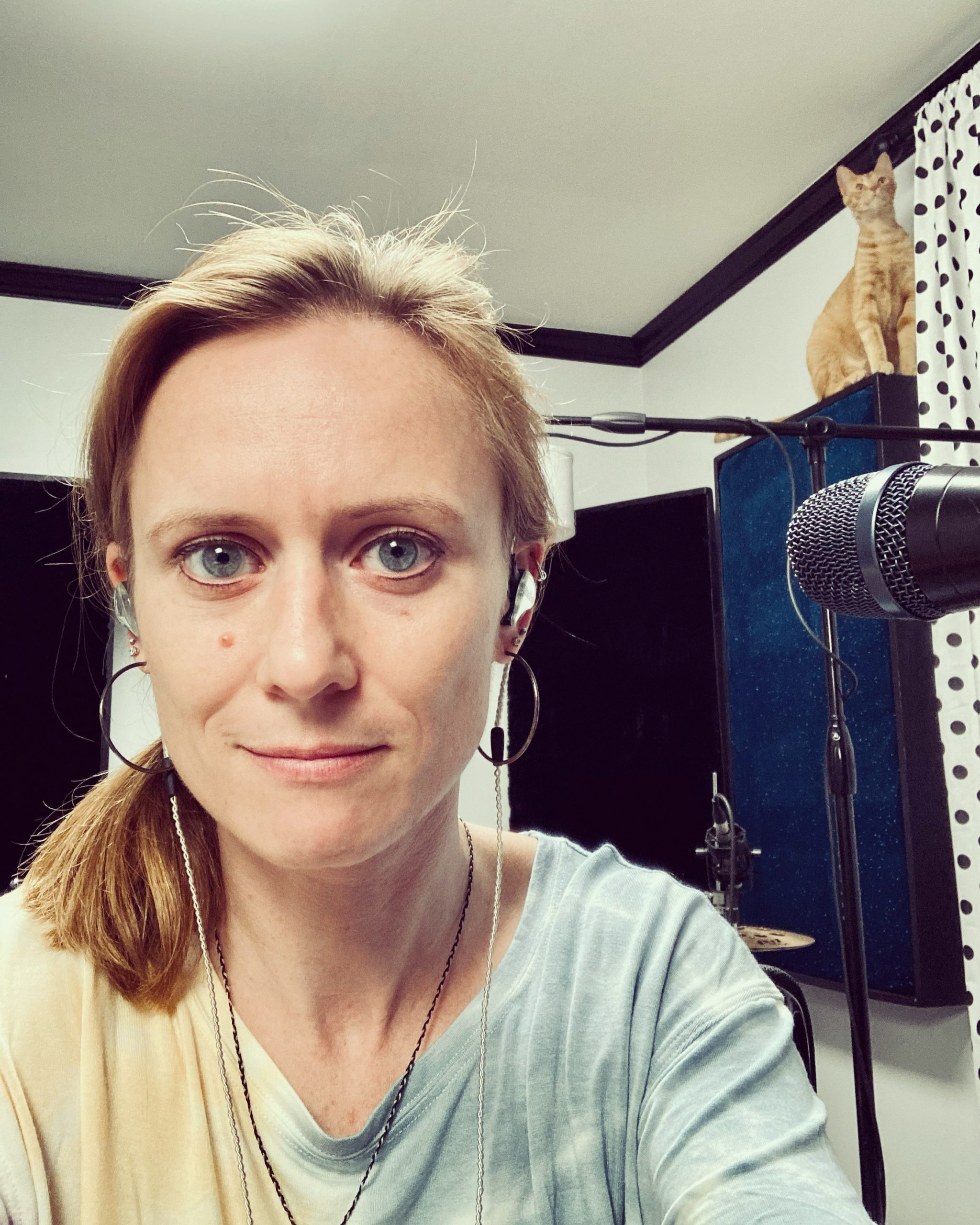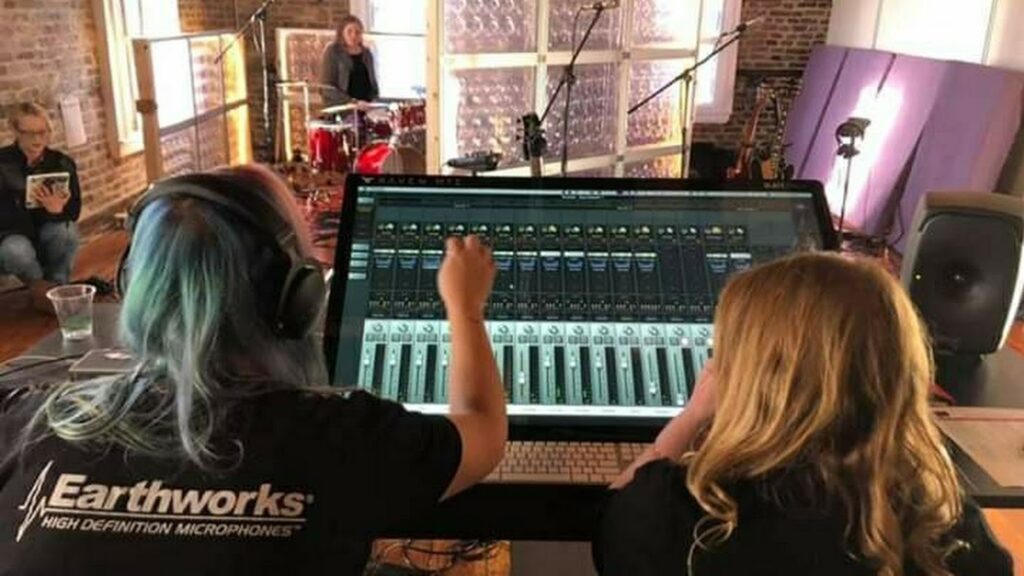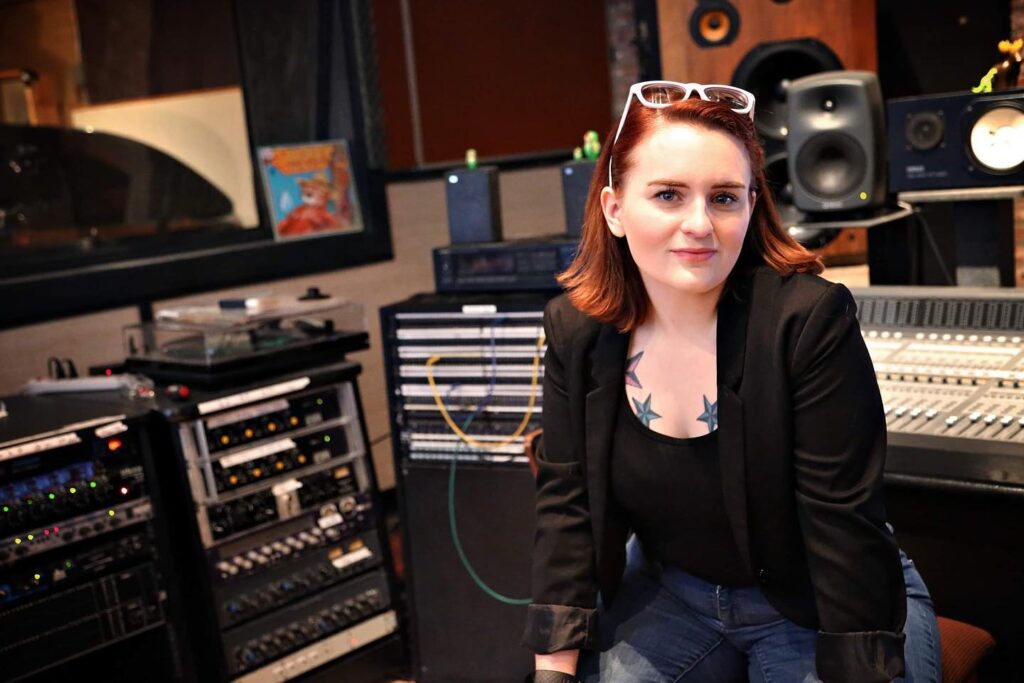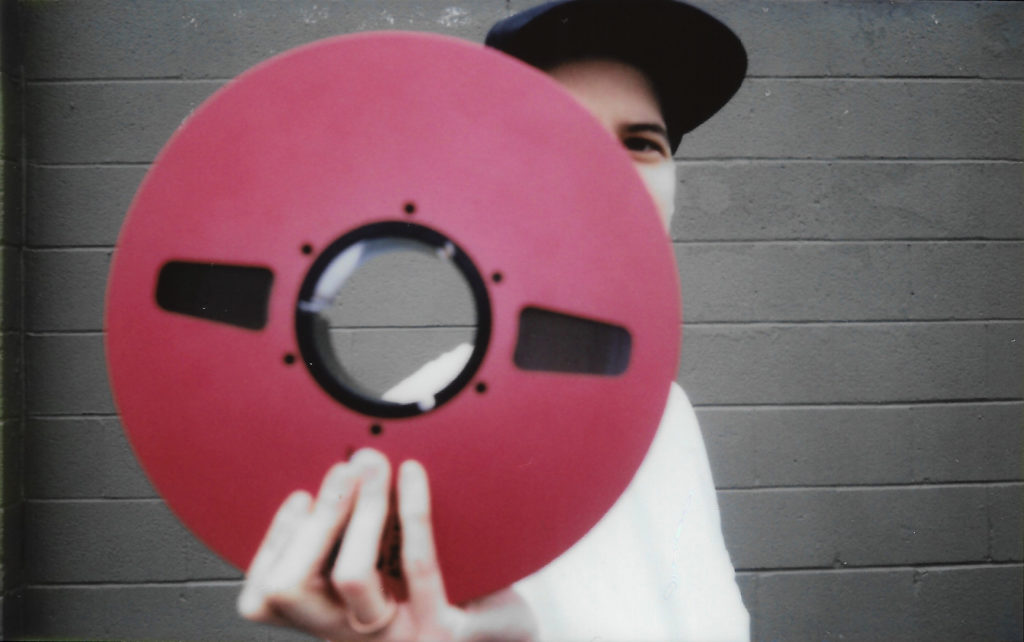Through a virtual workshop she led in 2020, songwriter and multi-instrumentalist Lisa Kacos helped me to understand music theory in the most practical terms I had ever heard. This is a specialty of hers, honed through decades of musicianship as well as academic study. She holds both a Bachelor of Composition in Music Theory as well as a Masters in Music Theory with a pedagogy emphasis from Michigan State University. She currently leads interactive online workshops such as the forthcoming Music Theory for Producers Workshop held April 30th through Omni Sound Project, where she is a core faculty member for 2022, as well as a popular Rhythm for Songwriters course. Previously, she has taught at her Alma Mater MSU, Grand Rapids Community College, and at SAE Institute – Nashville. As a musician, she writes and records her own music and has played with Outer Vibe, Samuel Herb, Violet LaVelle, and Amy Ray of the Indigo Girls. For the 2021 Omni Sound Project “Four Track Challenge,” she contributed tracks and stems from her original song “Losers Club” to be manipulated and remixed by fellow audio engineers, both established and aspiring.
What is your background in music and how did you first realize you could have a future in audio?
My first experience with music was 6th-grade band. I chose the trumpet, and I still play all the time! I’ve since learned drums, voice, piano, and ukulele. I decided to study music theory in college because I’m fascinated by the way music fits together. I have a Masters of Music Theory with an emphasis on how to teach it, and I was fortunate to have some wonderful mentors along the way. I’ve probably played over 1,000 shows with a band called Outer Vibe, and we always made our own records in our own space, so I spent many years observing the recording process. In recent years I’ve started working on music more independently, and I really enjoy the power of the producer’s chair, digging into the recording and production of my music, and calling my own creative shots.
You are a highly educated music instructor. How did you feel about your academic experience? Are there things you try to emulate — or do differently — as an educator yourself?
I loved college. It was a time when I really grew as an individual…, especially while working on my Master’s degree. My background is basically a 50/50 split between classical music and rock & roll. I would go to class and study/practice during the week, play shows and make records with the band on the weekends. When I moved to Nashville, I started teaching music theory for producers at an audio college (SAE Institute) and started thinking about music theory more liberally, noticing the differences in the way we practice and apply theory to classical music compared to popular music. I find myself constantly evaluating my lessons and tailoring them to best suit the group I’m teaching, whether it’s college students or a virtual workshop, or a private lesson. I want people to get the very most out of my classes, and to be able to successfully apply it to what they do. Bach and Mozart might be turning up their noses from their graves, but I don’t really care. I want to encourage people to make their music the way it best captures what they want, and if they write parallel 5ths into their chord progressions, who cares? They wrote a damn song. They win.
Your “Rhythm for Songwriters” course is one I hope to take someday. How did you discover this was a need in the songwriting community?
In 2020, I (along with the rest of the world) found myself working remotely, teaching courses on Zoom. I started joining my friends and fellow artists/educators Allie Moss and Bess Rogers as guest teachers with their songwriting community “Thinking Outside the Blocks,” offering virtual rhythm and drum-related classes in addition to what they were already teaching. We all noticed that the rhythm classes seemed to fill a void for many of the group members – songwriters have a tendency to focus on chords and melodies, and maybe forget to consider the important role rhythm plays in their music. We charted out some ideas for the course, and I’ve spent the last year creating and teaching it. I cover everything from time signatures to strumming patterns to drum programming, with tons of other stuff packed in there.
During your online classes I’ve taken, I’ve noticed that you have some excellent gear and cozy, cat-friendly space for recording. Tell us about the evolution of your home studio and your intentions for it moving forward.
Thank you! I’ve spent the better part of my life hanging around the studio environment, but I never actually had my own workspace until recently. My husband is a guitarist and engineer and always ran the band’s HQ and made our records. I used to be more of a fly in the wall in sessions, trying to stay out of the way, but I loved the environment and was very intrigued. He has always encouraged me to dig into recording so I can make my own music anytime I want without needing to wait for help. So, again, a silver lining of the past few years. We spent our time stuck at home converting a room in our house into my studio and workspace. All my instruments are finally in one place, miked and ready to go. We made the acoustic treatment. We made cables. We researched gear. We went to Home Depot a thousand times. And I started digging into the parts of the audio world that most interest me – capturing performances and producing songs. It’s also a teaching studio for virtual workshops and classes, and a great co-write and private lesson space. I am part of Omni Sound Project’s core faculty for 2022, so I am often planning workshops and YouTube tutorials for them. I love creating content, and in addition to making music and tutorials, I also make short videos just for fun. In the past few years, I’ve written and demoed dozens of songs, and my next plan is to finish and release my favorites. Oh, and my cat (his name is Sir George Martin, or Marty for short) is definitely a supportive assistant, but I have to shut him out while I teach classes, otherwise, he likes to show off by climbing my bass traps.
What are a few of your favorite recordings that keep inspiring you to do what you do?
I’m always inspired by Joni Mitchell’s “Blue” album, especially from a singer/songwriter’s perspective. And lately, I’ve been revisiting some 90s rock albums like Everclear’s “So Much for the Afterglow.” Great songwriting and performances and tons of energy. One of my all-time favorite bands is Muse (my favorite album is probably “Black Holes and Revelations”). I respect how they always stuck to their guns with their creative decisions. They also pack in a massive yet tasteful sound with just 3 people.
The recordings that most inspire me are the ones where you can hear clear as day that the artist means what they say and are giving it their all. To me, it’s not about making things perfect, it’s about making something meaningful, capturing it, and sharing it with the world. It’s one of the best feelings in the world. And the beautiful thing is that everyone does that differently, with their own voice and character and message. I like albums and look forward to making one for myself, a complete and cohesive work of art where everything is there for a reason and tells a story through the natural ebb and flow of life and experiences. I understand the focus on singles these days, but I prefer albums.
Thank you, Lisa.
Lisa Kacos will be leading the workshop “Music Theory For Producers” on Saturday, April 30th, 2022, through Omni Sound Project.



